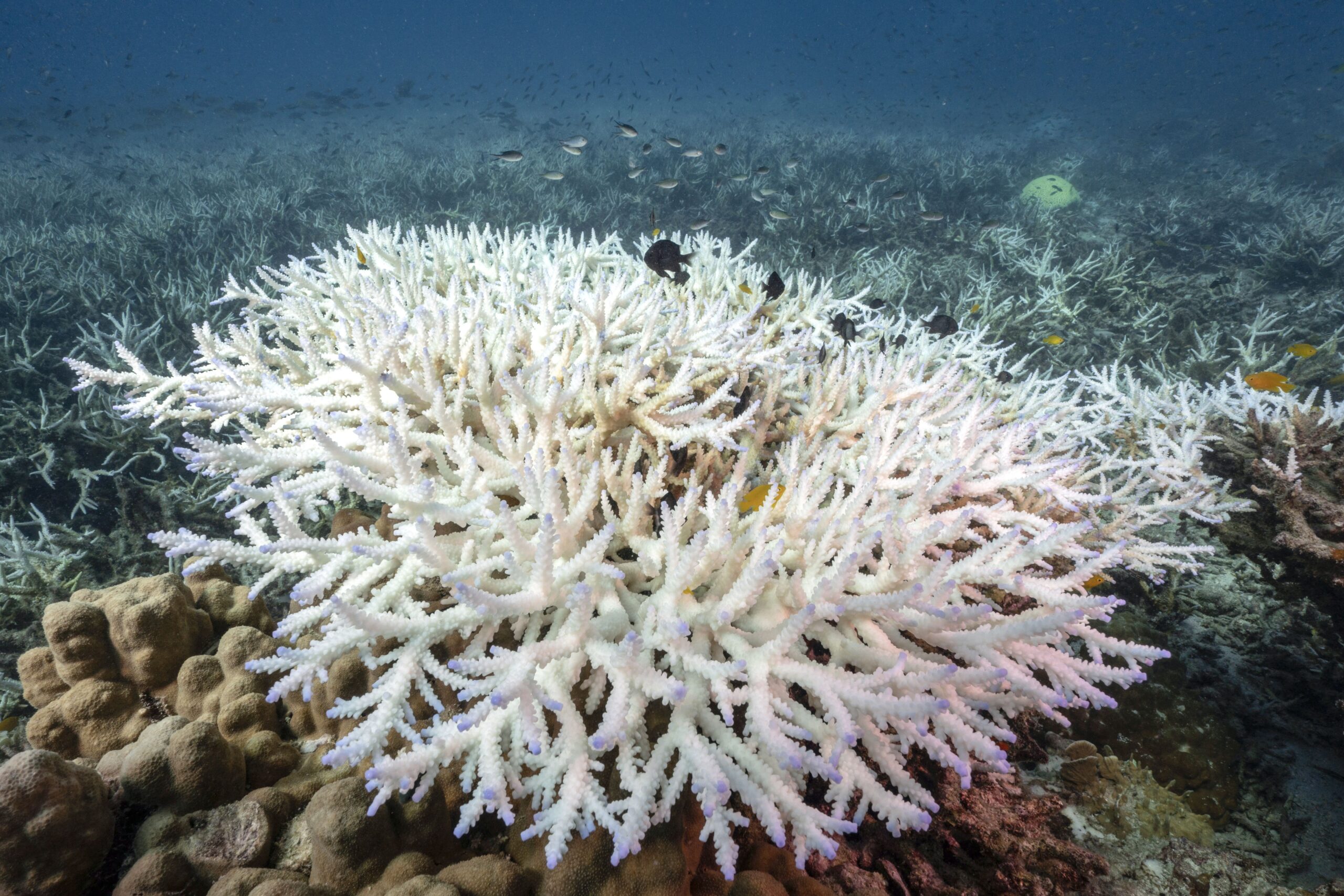The planet has entered a ‘new reality’ as it hits its first climate tipping point, landmark report finds

By Laura Paddison, CNN
(CNN) — The planet is grappling with a “new reality” as it reaches the first in a series of catastrophic and potentially irreversible climate tipping points: the widespread death of coral reefs, according to a landmark report produced by 160 scientists across the world.
As humans burn fossil fuels and ratchet up temperatures, it’s already driving more severe heat waves, floods, droughts, and wildfires. But there are even bigger impacts on the horizon. Climate change may also be pushing Earth’s crucial systems — from the Amazon rainforest to polar ice sheets — so far out of balance they collapse, sending catastrophic ripples across the planet.
“We are rapidly approaching multiple Earth system tipping points that could transform our world, with devastating consequences for people and nature,” said Tim Lenton, a professor at the Global Systems Institute at the University of Exeter and an author of the report published Sunday.
Warm water corals are the first, according to the report.
Since 2023, the world’s reefs have been enduring the worst mass bleaching event on record as oceans reach record high temperatures, with more than 80% affected. What was an underwater riot of color and life is being replaced with a bleached, seaweed-dominated landscape.
“We have now pushed (coral reefs) beyond what they can cope with,” said Mike Barrett, chief scientific advisor at the World Wildlife Fund UK and co-author of the report. Unless global warming is reversed “extensive reefs as we know them will be lost,” the authors wrote.
The impacts will have far-reaching consequences. Coral reefs are an essential habitat for marine species, vital for food security, contribute trillions to the global economy and buffer coastal areas from storms.
There’s even worse to come if temperatures continue to rise. The planet is on the brink of several more tipping points as it’s all but certain to breach the globally agreed goal of limiting warming to 1.5 degrees Celsius above pre-industrial levels, according to the report.
One of the most alarming of these is the potential collapse of the Atlantic Meridional Overturning Circulation, a crucial network of ocean currents known as the AMOC. This would have catastrophic global consequences, pushing parts of the world into a deep freeze, heating up others, disrupting monsoon seasons and raising sea levels.
“There is now a risk that collapse could occur within the lifetime of people born and living on the planet today,” Barrett said.
The world is not prepared for the impacts of crossing these tipping points, said Manjana Milkoreit, a researcher at the University of Oslo’s Department of Sociology and Human Geography and a report author.
Current policies and international agreements are “designed for gradual changes, not for these kinds of abrupt, irreversible and interconnected shifts,” she said. How governments respond now “could shape the Earth system for very long time,” she added.
Actions the report calls for include rapidly reducing planet-heating pollution and scaling up carbon removal from the atmosphere.
The world will overshoot 1.5 degrees, Lenton said, but the key will be minimizing further warming above this level and bringing the temperature back down as rapidly as possible.
Amid its alarming findings, the report also pulled out some positive news, including the “radical global acceleration” of solar power and electric vehicles, as well as batteries and heat pumps. Once replaced, polluting technologies are unlikely to come back as cleaner options are cheaper and better, it found.
The report comes just a month before governments gather in Brazil for COP30, the annual United Nations climate conference. This year is particularly important as countries are supposed to set out their goals for bringing down emissions over the next decade.
“This grim situation must be a wake-up call that unless we act decisively now, we will also lose the Amazon rainforest, the ice sheets and vital ocean currents,” Barrett said. “In that scenario, we would be looking at a truly catastrophic outcome for all humanity.”
The-CNN-Wire
™ & © 2025 Cable News Network, Inc., a Warner Bros. Discovery Company. All rights reserved.
